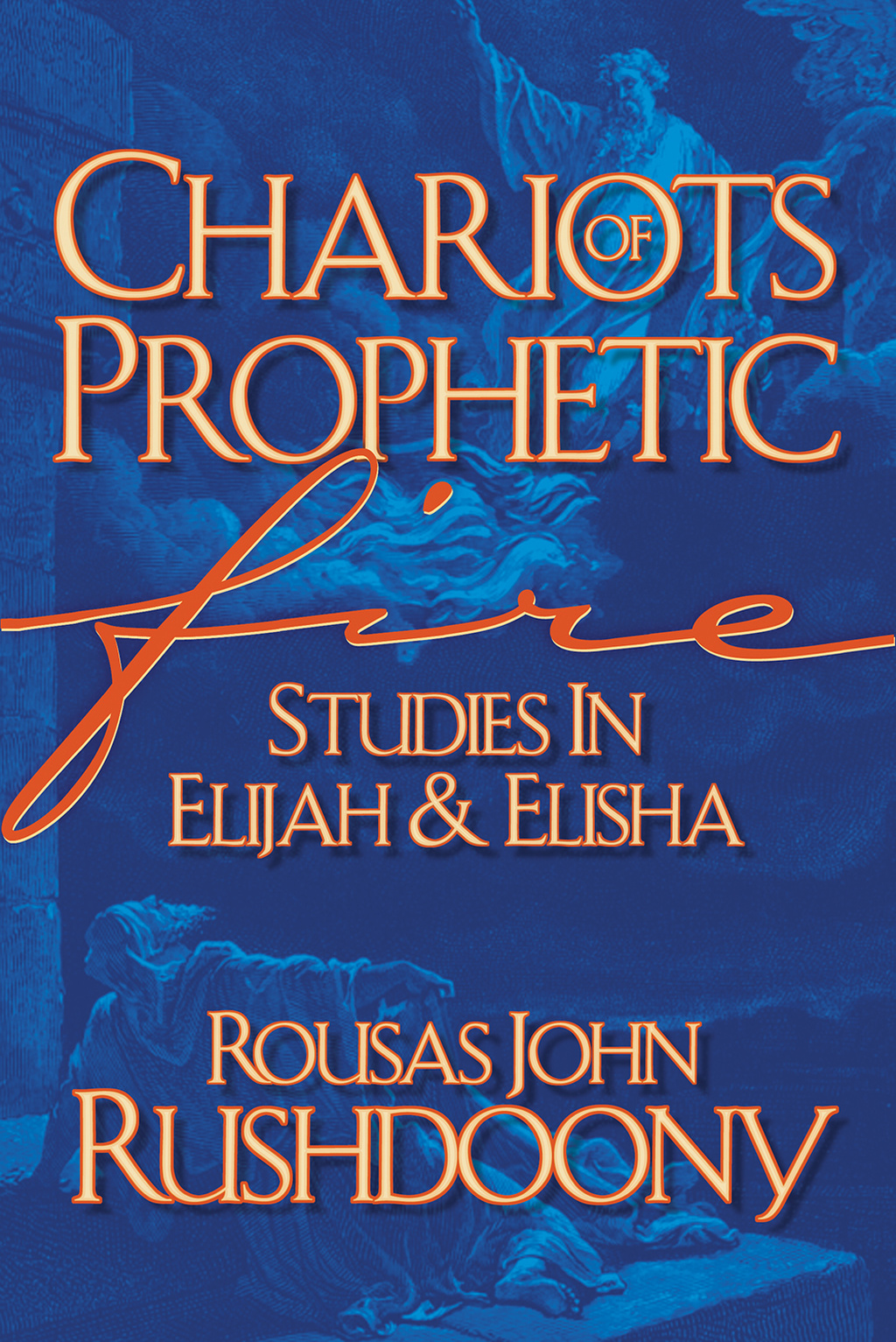
Chariots of Prophetic Fire: Studies in Elijah and Elisha
There is a marked resemblance between our time and that of Elijah and Elisha. Theirs was a time of judgment; ours is as well. But there is a deeper resemblance. Their day was an age of syncretism, of radical compromise between the worship of the Lord and Baal worship. The two had been blended together to make one religion, so that a refusal to see the necessity for uncompromising religion marked Israel.
eBook , Hardcover

- R. J. Rushdoony
There is a marked resemblance between our time and that of Elijah and Elisha. Theirs was a time of judgment; ours is as well. But there is a deeper resemblance. Their day was an age of syncretism, of radical compromise between the worship of the Lord and Baal worship. The two had been blended together to make one religion, so that a refusal to see the necessity for uncompromising religion marked Israel.
In Chariots of Prophetic Fire, R. J. Rushdoony challenges the Church of our day to resist compromise and the temptation of expediency, and realize that the power today does not lie in politics or governments but in God’s men of faith.

- R. J. Rushdoony
Rev. R.J. Rushdoony (1916–2001), was a leading theologian, church/state expert, and author of numerous works on the application of Biblical law to society. He started the Chalcedon Foundation in 1965. His Institutes of Biblical Law (1973) began the contemporary theonomy movement which posits the validity of Biblical law as God’s standard of obedience for all. He therefore saw God’s law as the basis of the modern Christian response to the cultural decline, one he attributed to the church’s false view of God’s law being opposed to His grace. This broad Christian response he described as “Christian Reconstruction.” He is credited with igniting the modern Christian school and homeschooling movements in the mid to late 20th century. He also traveled extensively lecturing and serving as an expert witness in numerous court cases regarding religious liberty. Many ministry and educational efforts that continue today, took their philosophical and Biblical roots from his lectures and books.